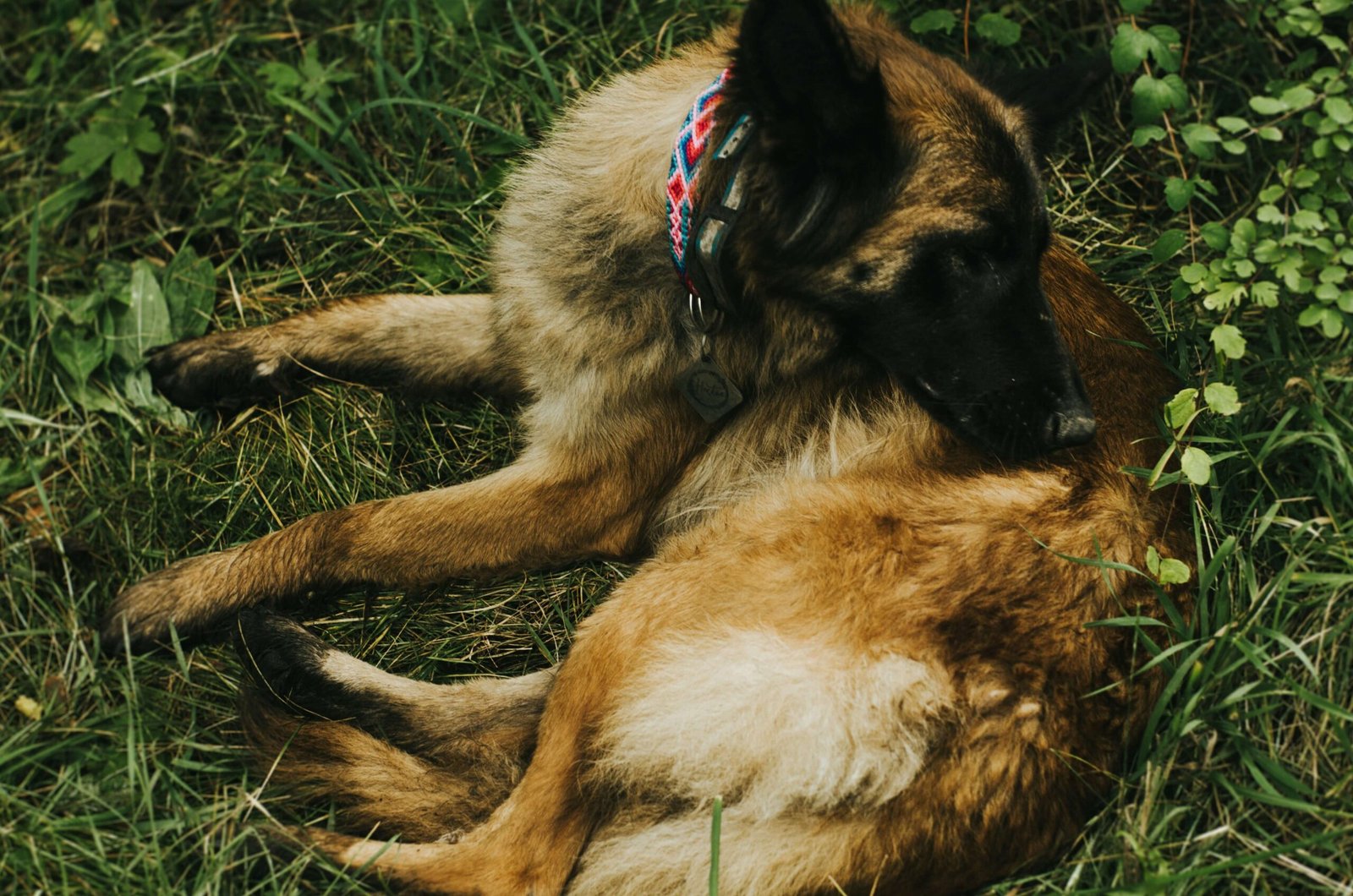Understanding Why Your Pregnant Dog May Not Be Eating
When you notice that your pregnant dog has suddenly lost her appetite, it’s natural to feel concerned. Pregnancy is a delicate phase for dogs, and their nutritional needs increase significantly during this time. A lack of appetite can be alarming, but it doesn’t always indicate a serious problem. In this blog post, we’ll explore the reasons behind this behavior, how to address it, and ways to ensure your furry friend stays healthy throughout her pregnancy.
Common Reasons Why Pregnant Dogs Lose Their Appetite
A pregnant dog may stop eating for various reasons, ranging from hormonal changes to discomfort. Below are some common factors that could explain this behavior:
Hormonal Changes
Pregnancy triggers significant hormonal shifts in a dog’s body, which can affect her appetite. These changes are normal but should still be monitored closely.Morning Sickness
Just like humans, dogs can experience morning sickness during pregnancy. This might lead to nausea and a temporary loss of appetite.Stress or Anxiety
Environmental changes, loud noises, or unfamiliar surroundings can make a pregnant dog feel stressed, causing her to eat less than usual.Physical Discomfort
As the puppies grow, they take up more space in the abdomen, making it uncomfortable for the mother to eat large meals.Underlying Health Issues
While a reduced appetite is often harmless, it could also signal health problems such as infections or complications with the pregnancy.
If your dog refuses food for more than 24 hours, it’s essential to consult a veterinarian to rule out any serious conditions.
Signs That Indicate Something More Serious
While occasional disinterest in food is common during pregnancy, certain signs suggest that your dog may need immediate medical attention. Here’s what to look out for:
Vomiting or Diarrhea
Persistent vomiting or diarrhea can lead to dehydration and malnutrition, both of which are dangerous for a pregnant dog.Lethargy
If your dog seems unusually tired or unwilling to move, it could indicate an underlying issue requiring professional care.Weight Loss
Significant weight loss during pregnancy is concerning and may affect the health of the unborn puppies.Abdominal Pain
Signs of abdominal pain, such as whining or restlessness, could point to complications like uterine infections or premature labor.Fever
A fever in a pregnant dog is never normal and should be addressed by a vet immediately.
Keep an eye on these symptoms and act promptly if they appear. Early intervention can make all the difference.
Check this guide 👉Can a Dog Get Pregnant When Not in Heat? Best 7 Expert Tips!
Check this guide 👉What to Expect from a Female Dog After Mating: Best 7 Tips!

Symptoms to Watch For | Possible Causes |
|---|---|
Loss of appetite | Hormonal changes, stress |
Vomiting | Morning sickness, infection |
Lethargy | Nutritional deficiency, illness |
Abdominal swelling | Normal growth, potential issue |
Excessive panting | Heat stress, anxiety |
How to Encourage Your Pregnant Dog to Eat
If your pregnant dog is refusing food, there are several strategies you can try to entice her back to her meals. Here are some practical tips:
Offer Smaller, Frequent Meals
Instead of one or two large meals, provide smaller portions spread throughout the day. This reduces pressure on her stomach.Serve High-Quality Food
Choose nutrient-rich foods specifically designed for pregnant or nursing dogs. These will meet her increased dietary needs.Add Tasty Toppings
Enhance the flavor of her food by adding wet food, chicken broth, or plain cooked chicken. Avoid seasoning or spices.Create a Calm Environment
Feed your dog in a quiet, comfortable space away from distractions or stressors.Encourage Hydration
Ensure she has access to fresh water at all times. Dehydration can worsen her lack of appetite.
With patience and consistency, these methods can help restore your dog’s interest in food.
Nutritional Needs During Pregnancy
Proper nutrition is crucial for a pregnant dog’s health and the development of her puppies. Here’s what you need to know about meeting her dietary requirements:
Increase Protein Intake
Protein supports fetal growth and helps maintain muscle mass in the mother. Look for high-protein dog food options.Include Essential Fatty Acids
Omega-3 and omega-6 fatty acids promote healthy skin, coat, and brain development in the puppies.Provide Adequate Calories
A pregnant dog’s calorie needs increase by up to 50% during the last trimester. Adjust her diet accordingly.Avoid Harmful Foods
Never feed your dog toxic foods like chocolate, onions, garlic, or grapes. Stick to safe, vet-approved treats.Supplement Wisely
Consult your vet before giving any supplements to ensure they’re safe and beneficial for your dog.
By focusing on balanced nutrition, you can support your dog through this critical stage of life.
Subtle Ways to Monitor Your Pregnant Dog’s Health
Monitoring your pregnant dog’s health is essential to ensure she remains comfortable and thriving throughout her pregnancy. Here are some simple yet effective ways to keep track of her well-being:
Track Her Weight Weekly
Regularly weighing your dog helps you notice any significant weight gain or loss, which could indicate underlying issues.Observe Energy Levels
Note whether she seems active or unusually lethargic. Sudden drops in energy may signal discomfort or illness.Check Her Gums
Healthy gums should be pink and moist. Pale or dry gums might suggest dehydration or other health concerns.Monitor Fetal Movement **
As the pregnancy progresses, you may feel the puppies moving. A lack of movement could warrant a vet visit.Keep a Food Diary
Document what and how much she eats daily. This can help identify patterns if her appetite fluctuates.
By staying vigilant and observant, you can catch potential problems early and ensure your dog receives timely care.
Subtle Ways to Monitor Your Pregnant Dog’s Health
Monitoring your pregnant dog’s health is essential to ensure she remains comfortable and thriving throughout her pregnancy. Here are some simple yet effective ways to keep track of her well-being:
Track Her Weight Weekly
Regularly weighing your dog helps you notice any significant weight gain or loss, which could indicate underlying issues.Observe Energy Levels
Note whether she seems active or unusually lethargic. Sudden drops in energy may signal discomfort or illness.Check Her Gums
Healthy gums should be pink and moist. Pale or dry gums might suggest dehydration or other health concerns.Monitor Fetal Movement **
As the pregnancy progresses, you may feel the puppies moving. A lack of movement could warrant a vet visit.Keep a Food Diary
Document what and how much she eats daily. This can help identify patterns if her appetite fluctuates.
By staying vigilant and observant, you can catch potential problems early and ensure your dog receives timely care.
Preparing for Labor and Delivery
As your dog approaches her due date, preparing for labor and delivery is key to ensuring a smooth process. Here’s how you can get ready:
Set Up a Whelping Box
Create a clean, cozy space where she can give birth and care for her puppies comfortably.Stock Up on Supplies
Gather essentials like clean towels, gloves, and puppy milk replacer in case of emergencies.Learn the Signs of Labor
Familiarize yourself with signs like restlessness, nesting behavior, and a drop in body temperature.Know When to Call the Vet
Understand warning signs like prolonged straining or green discharge, which may require immediate assistance.Stay Calm and Supportive
Your presence can comfort your dog during delivery, so remain patient and reassuring throughout.
With proper preparation, you can provide a safe and supportive environment for your dog and her newborn puppies.
Frequently Asked Questions About Pregnant Dogs Not Eating
Is it normal for a pregnant dog to skip meals?
Yes, occasional skipped meals are normal due to hormonal changes or mild discomfort. However, prolonged refusal to eat requires veterinary attention.
Can I give my pregnant dog human food?
Some bland human foods like boiled chicken or rice are safe, but avoid anything spicy, salty, or toxic to dogs.
How long can a pregnant dog go without eating?
A pregnant dog shouldn’t go more than 24 hours without eating. Prolonged fasting can harm both the mother and her puppies.
Should I force-feed my pregnant dog?
No, forcing food can cause additional stress. Instead, try tempting her with tasty, nutritious options.
What if my dog vomits after eating?
Occasional vomiting isn’t always a concern, but frequent episodes warrant a trip to the vet.
Supporting Your Pregnant Dog Through Every Step
Caring for a pregnant dog involves understanding her unique needs and being attentive to changes in her behavior. While a temporary loss of appetite is often part of the process, staying informed and proactive ensures the best outcomes for both mother and puppies. By providing proper nutrition, creating a stress-free environment, and seeking veterinary guidance when needed, you can help your dog navigate this special time with ease. Remember, your love and care play a vital role in ensuring a healthy and happy pregnancy journey.
Do Cats Have Taste Buds? Best 7 Expert Tips! – Discover how cats experience flavors and why their taste is so unique.
Do Dogs Have Taste Buds? Best 7 Expert Tips! – Discover how dogs experience taste, their preferences, and what it means for their diet and health.
Can Cats Taste Sweet? Best 7 Expert Tips! – Discover why cats can’t taste sweetness, how it affects their diet, and tips to keep them healthy and happy.
Can Dogs Taste Sweet? Best 7 Expert Tips! – Discover how dogs perceive sweetness, which foods are safe, and tips to manage their sweet cravings responsibly.





